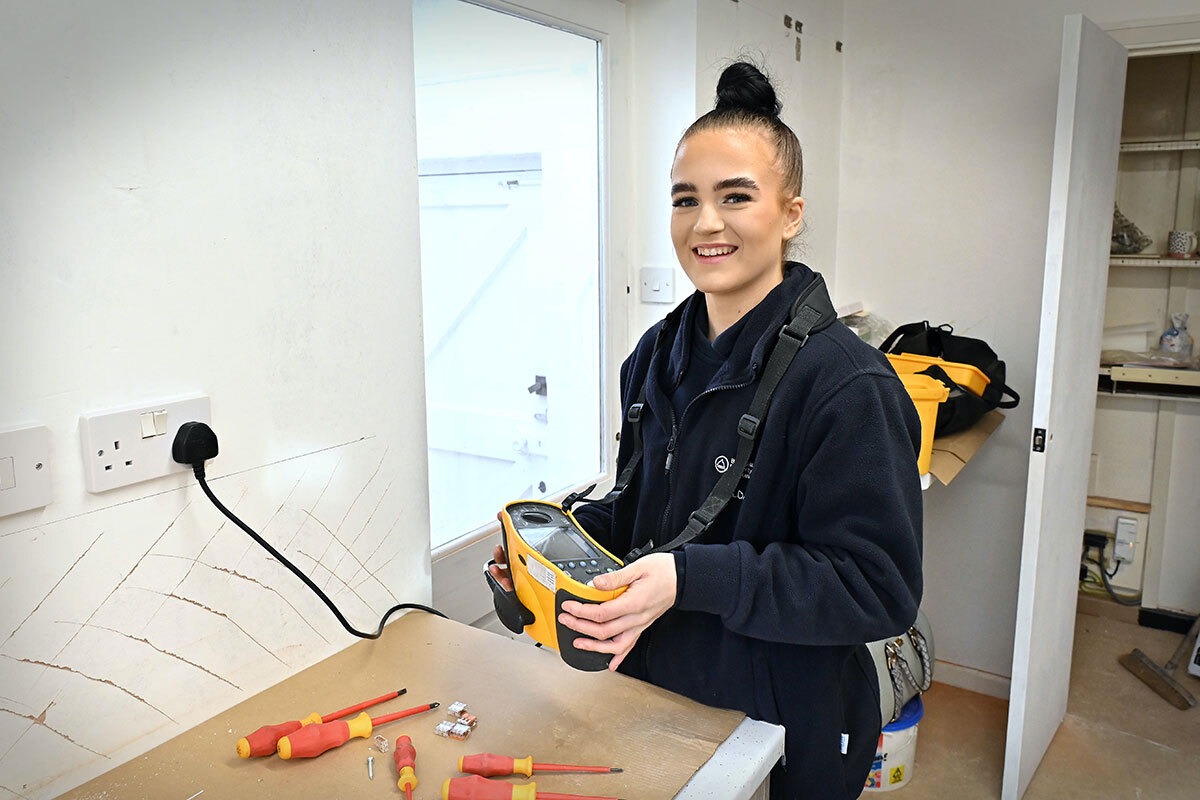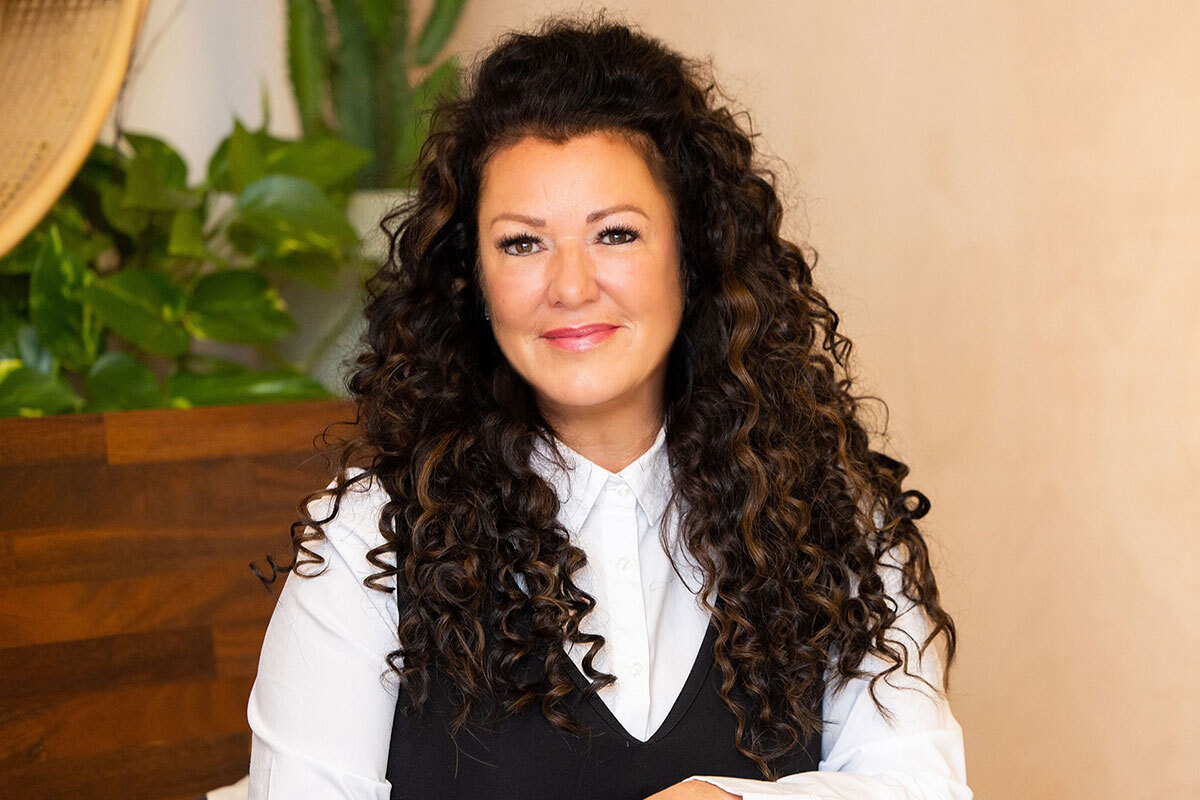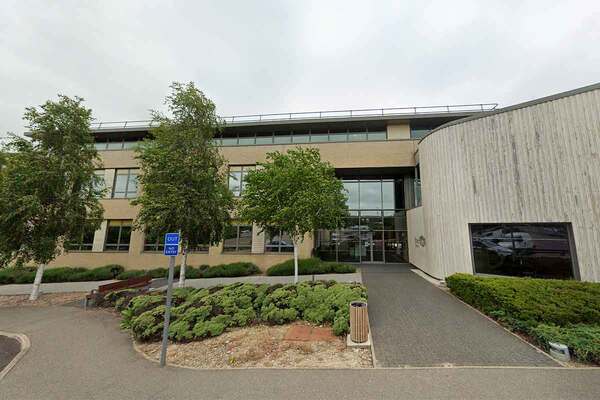What is the government doing to encourage apprenticeships in the sector?
How can apprenticeship strategies be created and successful? Inside Housing finds out from Novus Property Solutions’ Steve Davies and Sophie Seddon-Hall

In association with:

Apprentices are key to many organisations within the housing sector. Housing associations use them, as do suppliers within the industry. However, apprenticeships, and the best way to train young people, remain topics of significant debate.
Just last month, Sir Keir Starmer promised a new generation of “technical excellence colleges” as part of a “new direction for skills” if Labour wins the next general election.
Meanwhile, prime minister Rishi Sunak surprised watchers at the Conservative Party Conference by announcing plans to bundle A-levels and T-levels into a new advanced British standard qualification.
Against this backdrop is also the government’s ongoing Apprenticeship Levy. Introduced in 2017 as a way of tackling the UK’s shortage of skilled labour, it sees large organisations set aside 0.5% of their payroll for apprenticeships, which can be spent on certain types of training.
However, the levy has long faced question marks over its effectiveness. Earlier this year, a host of business leaders branded the levy a “£3.5bn mistake”.
Labour has vowed to reform the levy into a “growth and skills levy”.
So how are firms that use apprentices faring? Inside Housing spoke to Steve Davies, chief executive of national property maintenance and servicing company Novus Property Solutions, and Sophie Seddon-Hall, a non-executive director at the family-owned firm. Novus’ origins date back to 1897, when brothers George and John Seddon founded G&J Seddon, which eventually became Novus Property Solutions.
What is Novus’ approach to apprenticeships?
Steve Davies (SD): For 86 continuous years, the business has been delivering apprenticeships – they are a really important part of what we do. Typically, the apprenticeships we have offered have been trade driven – for example, carpenters, painters, multi-skilled individuals, quantity surveyors. But over the past couple of years, we’ve focused on office-based roles – business administration, health and safety, finance. We’ve been very much focused on trying to attract women into the business and we’ve become successful at that by offering office-based roles as well as trade roles. Everyone that joins our apprenticeship team gets a dedicated mentor, who will guide them so they become a valuable contributor to our organisation.
How do you go about attracting and recruiting apprentices?
SD: We place adverts with the colleges, schools and organisations that we work with. In the past two years, we’ve had around 600 CVs and application forms.
These applications get sifted down to a shortlist, which then go to telephone interviews. And then from that, applicants are invited into some of our offices around the UK to go through a formal interview process.
Do you have a target for recruiting apprentices?
SD: The aim is for individuals to become fully qualified and have a career with us.
Sophie Seddon-Hall (SSH): At the same time, one of the philosophies of my granddad that was fed down to my dad and then to me is that if an individual decides to ‘fly the nest’ to do their own thing, we send them off with our absolute blessing. It’s because we know that the skills we’ve provided them with are the right amount to ensure our industry is kept at the right level. We know there is a level of skill that will then flow through the industry.
How do apprenticeships tie in to the idea of social value?
SD: The idea of social value is becoming increasingly important to the people who buy our services. One aspect for me is about the individuals themselves. We reflect on the young people who apply to us, some of whom are vulnerable, including homeless people. If we can offer that young individual an opportunity to come and work in our organisation through an apprenticeship, we start to change their lives as well.
It’s not about paying lip service to the idea of ‘social’, it’s about being able to demonstrate it in the community as well.
Steve Davies joined Novus Property Solutions as chief executive in July 2021. He is responsible for the strategic direction of the business and its day-to-day operations, including leading Novus to achieve its strategic targets. Prior to joining Novus, Mr Davies held managing director and group board roles at Serco Group, Compass Group and Kier Group, allowing him to bring unique insights from the heart of the construction and maintenance sectors to his present role as chief executive.
Sophie Seddon-Hall is a non-executive director and a shareholder of JSSH, parent company of Novus. During
her 10 years with the business, she has been responsible for the marketing, people, corporate responsibility and customer functions.
She ensures the business is living its values, as well as delivering on its strategy.
How do we address the capability gap for the next generation of leaders?
SSH: I think it’s about inspiring the next generation with the fantastic leaders that we have recruited within our business. And then it’s about supporting them using softer skills, by building their confidence and creating opportunities for them to flex their leadership skills. For example, we have in-house training that will give individuals extra skills, such as self-awareness, communication, stakeholder management and project management.
How have you found recruiting apprentices into the business in the past five years?
SSH: Novus operates across the UK, however we have found it tricky to recruit in some areas. Another of the challenges is that when people think of construction or the trades sector, they often think of the old stereotype of a man with a toolkit. At present, 24,000 hands-on construction workers in the UK are women [according to Office for National Statistics figures from 2022] and we are really keen to engage with local communities and broaden people’s minds on what our industry can offer. There are many more women working in other areas of the construction industry and a large part of our business is marketing, finance and business development, so we want everyone to be able to see themselves working within the business.
Are you happy with how the government’s Apprenticeship Levy is operating?
SSH: There are barriers with the current Apprenticeship Levy, which can be a little bit off-putting for apprentices. For employers too, what you can spend the levy on also remains rigid, although there has been more flexibility about how we can spend the levy, and we’ve welcomed the leadership and funding that’s been made available because I think that’s really important.
SD: I think the levy is like a lot of things in life – if you put in the time, effort and focus, and understand the rules, you can benefit.
What changes, if any, should be made to the Apprenticeship Levy?
SSH: One of the changes we’d like to see is the eligibility criteria for apprenticeships. For example, we had a UK student who had completed their GCSEs in Thailand the year before, but they weren’t able to qualify for funding because they hadn’t resided in the UK for three consecutive years. These barriers need to be addressed to increase the amount of people we can get into the industry. We need a real variety of skills and abilities within the industry. So we’re making sure it is as inclusive as possible.












